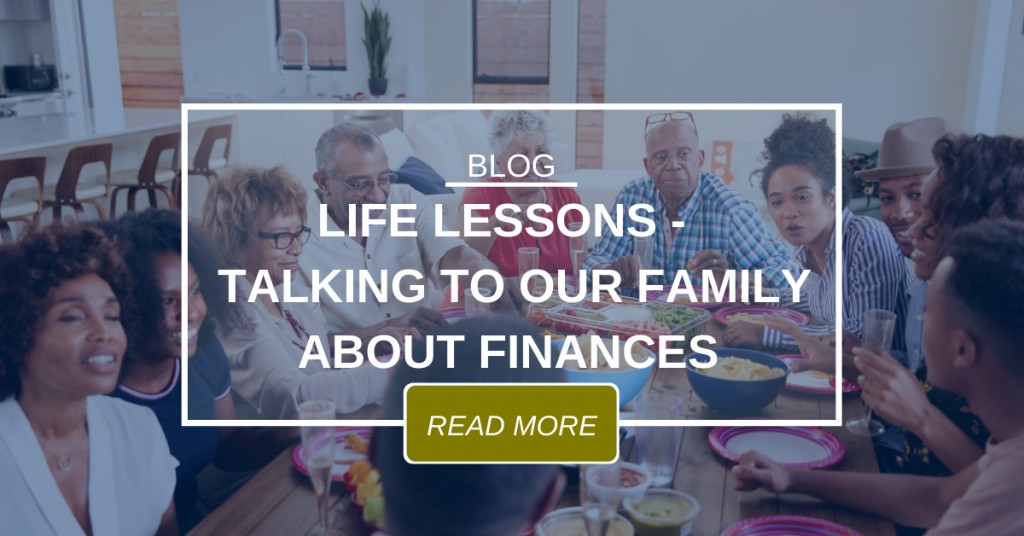Life Lessons – Can we end the stigma of not talking to our family about finances?
Up until recently, financial education was not something specifically taught in schools; and families are reluctant to discuss finances at home. So, is it any wonder that most children transition into adulthood with very little financial education?
Unfortunately, this lack of education translates into money troubles throughout adulthood. You can help change that by talking to the young people in your life about finances. It is easier than it sounds. Here are a few points to get you started:
- Probably the most important lesson is that you shouldn’t be afraid to talk about money with young people. Talk about how you earn, save, and spend money. Talk about wise and not so wise decisions you’ve made with money.
- Be consistent with your advice and actions. Don’t give a young person a lecture on wasteful spending and then make your own wasteful spending decisions. Trust me, they’ll notice.
- Answer and ask questions about money; but don’t lose trust. If you are having a conversation with a grandchild, keep that between the two of you and don’t necessarily run to their parents (unless of course that is necessary). Even though we’re hoping it will change, money is still a deeply personal subject. If someone opens up to you, don’t violate their trust. This will keep the conversation going and encourage them to talk to others.
- Don’t judge other’s money habits (this is so hard, I know). Lead by example rather than words; and try to come to where they are. You may have been there yourself at one point.
- Don’t overload young people (or anyone really) with too much information. We all have a limit to our retention (and interest). Be mindful of that and address their interests in hopes that they’ll be open to more conversations in the future.
- Don’t make it a drag! Financial education can be fun (I know I’m bias). Tell stories of how you earned and spent your first dollar.
The holidays are coming. Perhaps you can practice having some financial conversations at an upcoming family event.
In next month’s newsletter, we’ll give you some “starter” questions to use.



